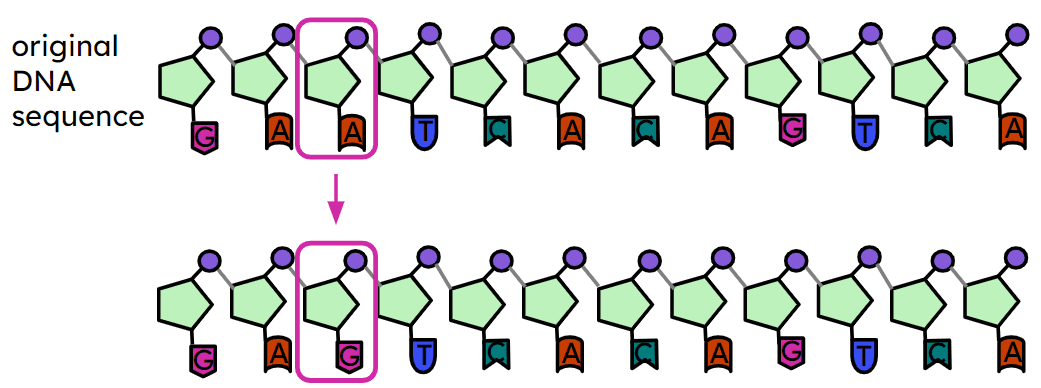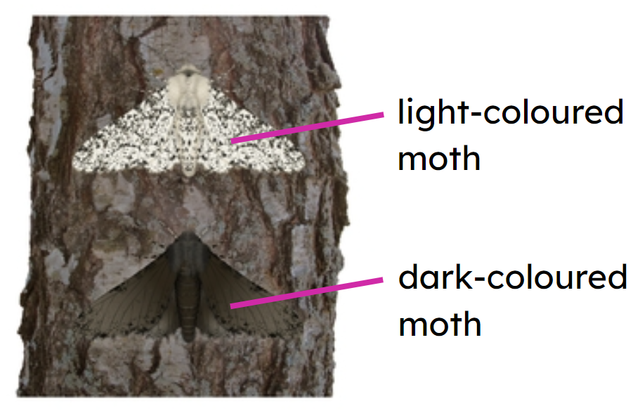Natural selection at the genetic level
I can explain how natural selection leads to advantageous genetic variants becoming more common over generations.
Natural selection at the genetic level
I can explain how natural selection leads to advantageous genetic variants becoming more common over generations.
These resources will be removed by end of Summer Term 2025.
Lesson details
Key learning points
- Some mutations cause genetic variants that cause advantageous adaptations in phenotype.
- Individuals with these genetic variants are better adapted to compete, survive, reproduce and pass them on to offspring.
- Natural selection causes advantageous genetic variants to become more common in the population over generations.
- This causes advantageous adaptations in phenotype to become more common in the population over generations.
- Examples explained at the genetic level using ideas about mutation, genetic variants and natural selection.
Keywords
Natural selection - Organisms that are better adapted to their environment are more likely to survive, reproduce and pass on their genes to their offspring.
Adaptation - A feature that organisms have that helps them live in a particular place and survive.
Genetic variant - A genetic variant is a region of DNA in which the sequence of nucleotide bases has been changed.
Phenotype - The observable traits of an organism.
Common misconception
Many students write that organisms change themselves to become better adapted to their environment.
This lesson contains checks for this misconception and challenges it with examples of natural selection explained at the genetic level.
To help you plan your year 11 biology lesson on: Natural selection at the genetic level, download all teaching resources for free and adapt to suit your pupils' needs...
To help you plan your year 11 biology lesson on: Natural selection at the genetic level, download all teaching resources for free and adapt to suit your pupils' needs.
The starter quiz will activate and check your pupils' prior knowledge, with versions available both with and without answers in PDF format.
We use learning cycles to break down learning into key concepts or ideas linked to the learning outcome. Each learning cycle features explanations with checks for understanding and practice tasks with feedback. All of this is found in our slide decks, ready for you to download and edit. The practice tasks are also available as printable worksheets and some lessons have additional materials with extra material you might need for teaching the lesson.
The assessment exit quiz will test your pupils' understanding of the key learning points.
Our video is a tool for planning, showing how other teachers might teach the lesson, offering helpful tips, modelled explanations and inspiration for your own delivery in the classroom. Plus, you can set it as homework or revision for pupils and keep their learning on track by sharing an online pupil version of this lesson.
Explore more key stage 4 biology lessons from the Variation and natural selection at the genetic level unit, dive into the full secondary biology curriculum, or learn more about lesson planning.

Equipment
None required.
Licence
Starter quiz
6 Questions



A trait that helps an organism to survive in a particular place.
The struggle for resources that organisms need.
Individuals with advantageous traits are more likely to pass them on.
The process of making a new generation of offspring.

Exit quiz
6 Questions




change the organism’s genome.
happen due to evolution.
change the organism’s phenotype.



